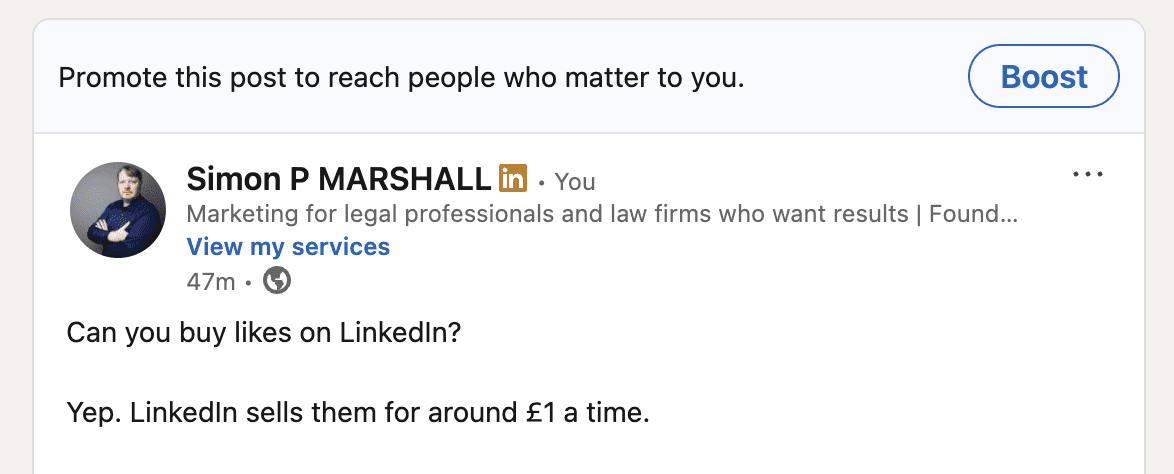A business that never made a mistake never made anything…
As the old adage has it, you can’t make an omelette without breaking some eggs. Collectively, we here at TBD towers have broken plenty over the course of six years spent building and growing a successful legal marketing agency that punches above its weight.
But I’d like to think that we’ve been left with very little egg on our face, because we have never failed to learn from our mistakes, and have always found creative and interesting ways – if you’ll excuse another food-based metaphor – to turn lemons into lemonade.
I’m proud of what TBD Marketing has become in its six-year history. Proud of the challenges we’ve overcome. Proud of the growth we’ve achieved. Proud of the great clients we have been able to serve with innovation and flair. And immensely proud of the team we have built.
To celebrate six years of TBD Marketing, I have distilled the six key lessons I have learned as an entrepreneur that have helped me to grow the business into what it is today. Hopefully, these prove useful to you, allowing you to learn from the mistakes the team and I have made, and the successes we have achieved. So let’s get cracking.
1. Don’t try to be everything to everyone
The science fiction author Robert Heinlein once contended that specialisation is for insects. That view cuts little ice in the world of boutique services providers. In this arena, most everyone says that it’s important to niche, and they’re right.
Why? Because it helps you to understand yourself and your business better, which in turn helps you market yourself more clearly and effectively, which then also helps clients understand you better – which makes it easier to buy you, and recommend you to others.
That’s not to say that you cannot offer a wide range of services. Here at TBD, we do more things for our clients than you are probably aware of from just following me on LinkedIn, for example. But that’s because we focus on marketing our core services, by which we build key relationships with our clients, which then gives us a platform on which to sell our wider range of services.
However, to paraphrase Dirty Harry, a good business always knows its limitations: though we’re always willing to learn a new trick or two, we are keenly aware of what we are good at, what we enjoy and where we can add value. And we are always guided by this.
2. Embrace the power of saying ‘No’
Or to put it another way, if it ain’t a hell yes, it’s a fudge no! There are only so many hours in the working day, and by repeatedly saying yes to things you don’t enjoy doing, you take away too much of the time you have available for doing the work that floats your boat, gets your synapses firing and nourishes your soul. Or the time you could be spending marketing yourself to those potential clients who will give you more of that boat-floating, synapse-igniting, soul-nourishing work.
Also, by saying yes to things you don’t enjoy doing, or to deadlines that put you under unsustainable amounts of pressure, it gives existing clients the impression that you are happy to do this kind of work, under these conditions, and encourages them to offer you more of it.
This is a form of miscommunication, because your intentions are not aligned with your actions: your mouth is saying yes while your heart is saying no. Clients can only hear the former, but may come to sense that your heart isn’t in the work. This ends up creating a situation that isn’t satisfactory to either party.
Listen, in the early days of setting up a business, we probably all fall into the trap of taking on things we would rather not, because we are desperate to prove ourselves. And, let’s be frank, we need the money. But, ultimately, we come to see that setting clear boundaries for ourselves is important.
For the right client, you will be happy to occasionally take on projects that don’t set the Thames alight, or with a very tight deadline that eats away at your work-life balance and leaves you short of time for other things. But you don’t want this to become the norm. By daring to say no, you draw a line in the sand, for yourself and others.
3. Exceeding client service needs to be the norm (– so scope appropriately)
At the certain risk of contradicting the late, great Abe Lincoln, you do at least need to be aiming to please all of your clients all of the time if you want to run a successful business. This is where underpromising and overdelivering is so much more preferable than its inverse.
But even better is promising accurately by scoping each project and task appropriately. If in any doubt at all, seek clarification at the outset as to what the client requires from you, rather than thinking you have understood something, going away to work on it for days or weeks at a time, only subsequently to discover that the wham-o thingamajig your have created is not actually what the client wanted at all.
We certainly haven’t always got this right here at TBD, and have made plenty of mistakes along the way. But there is so much to be learned from mistakes, and we do our very best to avoid making the same mistake twice.
4. There’s no such thing as an ideal client – as a corollary: Don’t be afraid to end client relationships that no longer work for you
One of the great joys of being self-employed or running your own business is that you get to choose whom you work for. If you’re lucky enough, some clients will become clients for life, as your business grows organically alongside theirs (here’s looking at you, Bellevue Law). Sometimes, however, a client will only come into your professional orbit for a one-project deal, and that’s okay too. But it’s important to learn to distinguish and separate between the two, and not cling on to, or force the issue with, clients that aren’t a good long-term fit for you, for whatever reason.
And even a regular client who is ideal in almost every way may still not challenge you enough – the work may become too routine, too predictable in its scope. This is why it pays to have a range of different clients – they can all sit within the sweet spot of what it is you do, but they should all push you at least a little bit, at least some of the time, to ensure that you still continue to learn and grow, together.
5. Put your team first
There’s a Richard Branson quote that I heartily endorse: “If you take care of your employees, they will take care of the clients.” My take on this is that, by surrounding yourself with a team that you love working with every minute of every day, and doing everything you can to keep them happy and reward them well, everything else falls into place.
For each and every TBD team member, I do my utmost to help them wear the different hats of student, expert and teacher, in the right balance to suit them and their different needs and personalities. Ideally, they all get to learn new things, hone their expertise and pass on their knowledge through working with our clients and with each other. It’s one of the key ways to keep them happy and engaged. It’s an approach that could go a long way to solving client-side retention issues too.
6. Your health and your family are (far) more important than any business success you’ll ever have
Here’s a very important lesson that perhaps doesn’t get enough air-time in today’s hustle culture: running your business cannot take priority over enjoying quality time with family and loved ones. No one ever goes to their deathbed wishing they had spent more time at their desk.
Yes, running your own business is ruddy hard work and unlikely to fall within the tramlines of a nine-to-five life. But you cannot be forever sacrificing your time to work. That’s how you destroy your mental and physical health, put a huge strain on your relationships and miss out on your kids growing up.
Success tastes sweet, but only as part of a balanced diet – so make sure you look after yourself, and be properly present for your loved ones. Because when all is said and done, family and friends are what life is all about.
In other news
Regional firms feel the ripple effects of high US and City starting salaries
Last week, The Times ran a piece on the impact that rocketing junior lawyer pay in the US and the City is having on the UK’s regional firms, with Bristol, Birmingham and Leeds-based practices all being forced to up the ante on starting salaries to compete for talent.
The best commercial lawyers are emotionally and culturally aware, says report
Another Times piece published last week discusses research conducted for the International Chamber of Commerce, which suggests that the most effective commercial lawyers have a strong understanding of the “emotional journey” of the businesses they advise, as well as local values and practices, which helps them to avoid cross-border disputes.
What a time to be a tax lawyer
According to an article in City A.M.this Tuesday, there is currently a record-level of demand for tax lawyers following the Government’s spring budget, with a report by professional recruiter Search and market data analysts Vacancysoft predicting that vacancies will surge to 32.5 per cent by the end of 2024.
A divided response to SQE failures at Magic circle firms
This week, The Lawyer reported that while Clifford Chance and Slaughter and May have reportedly rescinded the training contracts of those candidates who failed January’s SQEs, rival firms Freshfields Bruckhaus Deringer and Linklaters have apparently taken a more sympathetic approach and are, in fact, funding resits.
Stop arming Israel, say lawyers
In this LinkedIn post, Alex Goodman KC draws attention to an open letter published on Tuesday and signed by a who’s who of legal luminaries – including no fewer than 81 KCs and three former Supreme Court judges – which urges the Government to stop distributing arms to Israel, an action the signatories deem to be unlawful.
I hope you’ve enjoyed this week’s edition!
Si






